How to Register for Dentist NHS
As someone who recently moved to the UK, I had to navigate the NHS system to find a dentist. Registering with an NHS dentist may seem like a simple task, but it can be a bit tricky if you're unfamiliar with the process. In this guide, I'll share my personal experience and explain how you can easily register for an NHS dentist, the benefits of NHS dental care, and what to expect throughout the registration process.
1. What is NHS Dental Care?
Before diving into the registration process, it's important to understand what NHS dental care is and how it differs from private dental care. NHS dental services are provided by the National Health Service (NHS) in the UK. They offer a wide range of dental treatments at a fixed cost, which is generally more affordable than private care. NHS dental care includes routine check-ups, fillings, crowns, and even orthodontic treatment in some cases. However, not all services are free, and there may be a cost involved depending on the treatment and your personal circumstances.
1.1 Why Choose an NHS Dentist?
I chose to register with an NHS dentist because of the affordability and accessibility. The fixed costs make it easier for individuals and families to access dental care without worrying about the high fees often associated with private dentists. Additionally, NHS dentists follow standard guidelines and provide reliable services, ensuring that you receive the best care within the public system.
2. How to Find an NHS Dentist Near You
Finding an NHS dentist can be more difficult than you might expect. Due to the high demand for NHS dental services, some areas may have long waiting lists or a shortage of available spaces for new patients. I found that one of the most useful resources for locating NHS dentists was the NHS website. They offer a tool where you can search for NHS dentists by location and check if they are currently accepting new patients.
2.1 Using the NHS Website to Search for Dentists
To start your search, visit the official NHS website and look for the 'Find a dentist' section. This tool will ask for your postcode or area code, and you can specify whether you're looking for a dentist that is currently accepting new patients. If you’re lucky, the tool will display a list of NHS dentists near you. In some cases, if your local dentists aren’t accepting new patients, you may be directed to other nearby options.
2.2 Calling the Dentist Office
If you're unsure whether a dentist is accepting new patients online, don't hesitate to call the office directly. Some dental practices may have unlisted availability or can put you on a waiting list. I found that calling ahead helped me get a better idea of the actual availability and made scheduling easier.
3. The Registration Process: What to Expect
Once you've located an NHS dentist that's accepting new patients, the next step is registration. I was a bit unsure of what to expect at first, but the process is fairly straightforward. Here’s what I learned:
3.1 Initial Consultation
When I registered with my NHS dentist, the first step was to schedule an initial consultation. During this appointment, the dentist will assess your oral health, take any necessary X-rays, and discuss your dental care needs. For regular check-ups, this might involve a quick cleaning and assessment, but if you need more specialized care (like fillings or crowns), the dentist will recommend a treatment plan.
3.2 Filling Out the Registration Form
In order to officially register with an NHS dentist, you will need to complete a registration form. The form asks for basic information, such as your name, address, date of birth, and NHS number. For those who are new to the UK, it’s important to have your NHS number ready. If you don't have one, don’t worry—most NHS dentists will assist you with this process, and some even help you get your NHS number if you’re not yet registered.
3.3 Wait for Confirmation
After you submit the registration form, the dentist office will confirm your registration and send you details of your upcoming appointments. In some cases, you may be asked to wait for an available spot. The process might take a couple of weeks, but it’s important to be patient, especially in areas where demand is high.
4. NHS Dentist Costs and Payment
One of the best parts of NHS dental care is that it’s much more affordable than private options. However, it’s still important to understand the costs involved. NHS dental care is categorized into three bands:
4.1 Band 1
Band 1 covers a basic examination and diagnosis. This might include a routine check-up, advice on how to maintain good oral health, and a small charge for any minor treatments.
4.2 Band 2
Band 2 includes more complex treatments, such as fillings, extractions, and X-rays. The cost is higher than Band 1 but still affordable compared to private care.
4.3 Band 3
Band 3 is for more advanced treatments like crowns, dentures, and bridges. These procedures can be more expensive but are still significantly cheaper than their private equivalents.
4.4 When You Need to Pay
While NHS dental care is affordable, you should always ask about the estimated cost upfront before undergoing any treatment. Some services are free for children, those with certain medical conditions, or senior citizens, but most adults will need to pay a portion of the cost, depending on the treatment type.
5. Tips for Ensuring a Smooth Registration Process
As I went through the process of registering with my NHS dentist, I found a few helpful tips that made the experience easier:
5.1 Stay Proactive
Make sure to call ahead and inquire about appointment availability and the process. Don't rely solely on the website, as some dentists may not update their online listings in real-time.
5.2 Keep Your Information Handy
Ensure that you have all necessary documents, such as your NHS number, ID, and any prior medical records if relevant. Having everything ready makes the process much faster and smoother.
5.3 Be Prepared for Wait Times
Be prepared for wait times, especially if you're in a densely populated area. If you're on a waiting list, ask for an estimated timeline for when you'll be able to get an appointment.
5.4 Consider Private Options If Necessary
If you’re unable to get into an NHS dentist or need urgent care, consider seeing a private dentist temporarily until you're registered or until an NHS appointment becomes available. While more expensive, private dental care can still be a valuable alternative in some situations.

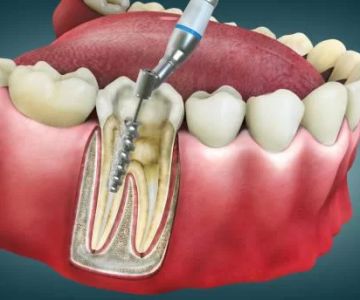
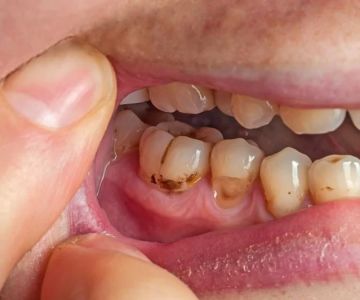

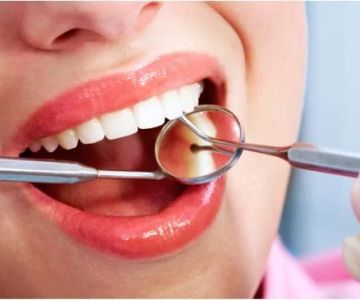
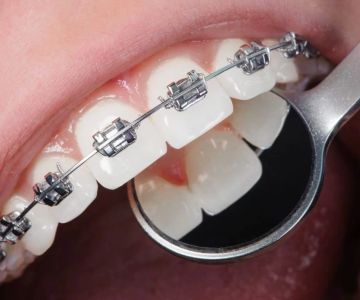
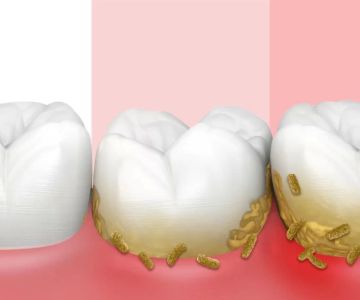
 Periodontology Inc.
Periodontology Inc. Hernandez Dental Care
Hernandez Dental Care East Nashville Aesthetic Dentistry
East Nashville Aesthetic Dentistry DK Orthodontics
DK Orthodontics Glow Dental Spa
Glow Dental Spa Rizkalla Dental
Rizkalla Dental The Importance of Oral Health Education During Pregnancy for a Healthy Pregnancy
The Importance of Oral Health Education During Pregnancy for a Healthy Pregnancy Why Skipping Dental Checkups Can Lead to Bigger Oral Health Problems
Why Skipping Dental Checkups Can Lead to Bigger Oral Health Problems Advantages of Porcelain Dental Restorations
Advantages of Porcelain Dental Restorations Best Tips for Brushing Your Teeth Properly for Healthy Gums: Essential Techniques for Oral Health
Best Tips for Brushing Your Teeth Properly for Healthy Gums: Essential Techniques for Oral Health How Can Diabetes Cause Tooth and Gum Problems? Preventing and Managing Oral Health Issues
How Can Diabetes Cause Tooth and Gum Problems? Preventing and Managing Oral Health Issues Healthy Habits for Promoting Good Oral Health and Hygiene: Tips for a Healthy Smile
Healthy Habits for Promoting Good Oral Health and Hygiene: Tips for a Healthy Smile